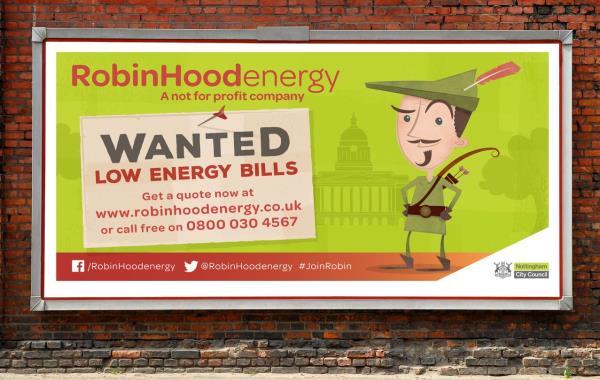07 June 2017
Robin Hood Energy launched in 2015 after being setup from scratch with limited resources in a vacant council office in Nottingham. 
Operated on a not-for-profit basis as a wholly-owned subsidiary of Nottingham City Council, Robin Hood Energy’s (RHE) mission is to provide low-cost electricity and gas to households and businesses in the East Midlands and beyond.
The company launched in September 2015 after being setup from scratch with limited resources in a vacant city centre council office. Nearly all the fledgling’s business would be conducted over the phone or internet, and so it needed technology guidance that would power its business.
A contact centre would form the heart of the new company. It had to be quick to implement with the scalability to meet demand as business grew.
But capital funding secured to launch the firm meant constraints on operating expenditure. It was therefore decided that a fixed cost solution would be preferable to variable cost cloud-based technology.
“In those early days, we had little in-house technical expertise,” recalls Robert Purdon, contracts manager, RHE. “We called on BT as a long-term service provider to the council to help us.”
Three contact centre suppliers were considered before BT was chosen and recommended an on-premise Enghouse Interactive Communications Centre (EICC) as the preferred option.
BT also provided Cisco Unified Communications Manager as recommended by the council’s IT team, and ISDN 30 lines for both the contact centre and back office functions.
Enghouse's platform was Initially set up to support 12 agents but quickly grew to 50 positions. 
Enghouse Interactive also supplied professional services to integrate EICC with a specialist utility-company CRM system. That means contact centre agents get a screen pop-up with customer information when a call comes in. If it’s a new customer, the agent can type their details straight to screen, and these are then automatically fed to the back office system without any re-keying.
Other features include a customer self-service meter reading app, and suppressing call recording when customers quote financial data in order to meet PCI DSS regulations. Potential enhancements being considered include customer post-call quality surveys, and call-back requests at busy times.








